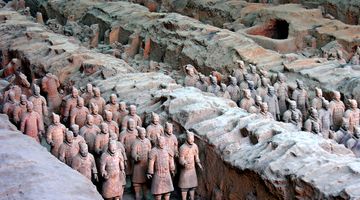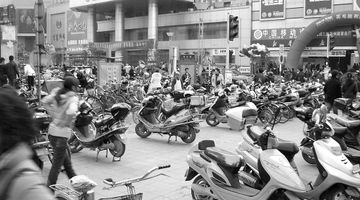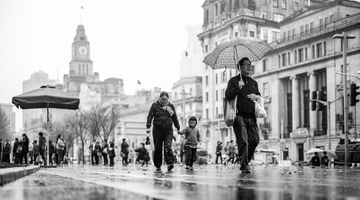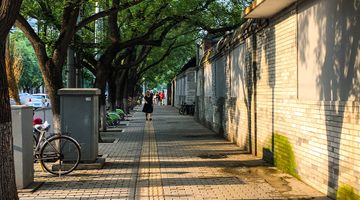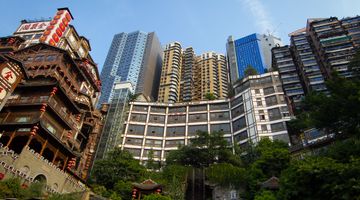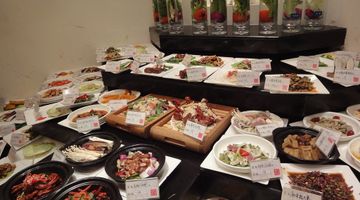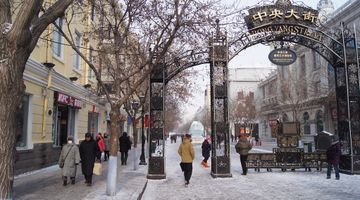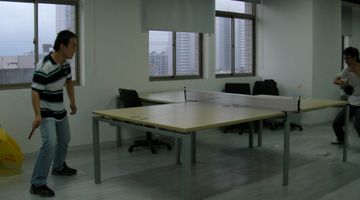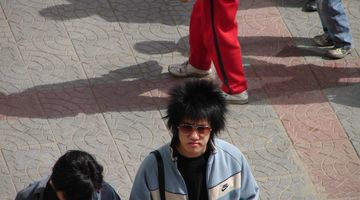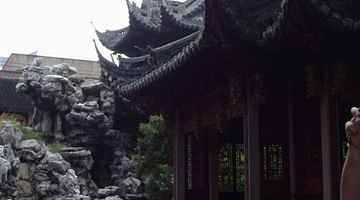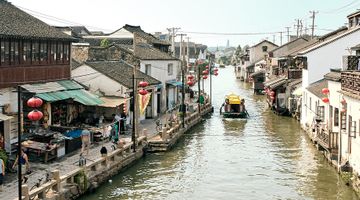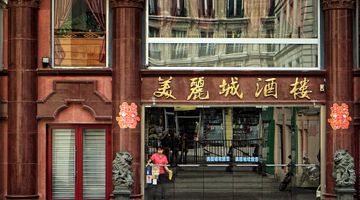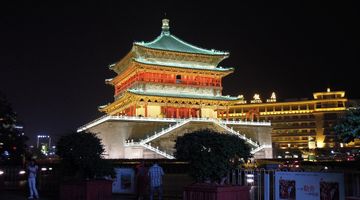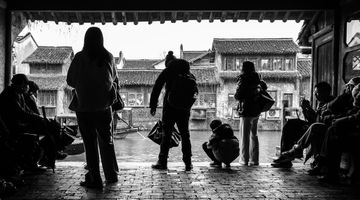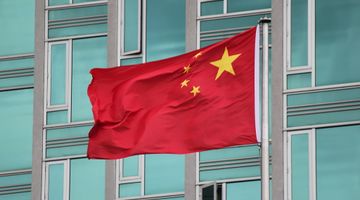Best Travel Tips for Your Travel in China
China may seem like an intimidating place to travel. It’s far away, they speak little English and they have very different culture with very different customs. While these are all true, for those who are willing to take the leap will find the rewards deeply enriching. It’s always best to be prepared, so we’ve come up with some top travel tips for China.
1.Get the right visa
This is a must-know. Before visiting China, a good place to start is by having the right visa. Tourists use the “L”, or tourist visa. On the L visa, you can travel freely around the country without fuss. Be aware that if you’re in a tour group, the entire group may be issued with the L visa and you won’t have an actual stamp in your passport.
It’s the easiest Chinese visa to obtain- all you’ll need is a tour itinerary and round-trip air tickets. It costs about $20 and lasts for a month with an option to renew. Remember that Tibet requires a different visa.
There are separate visas for business, work, students, and so on. They’re quite strict on their visa policies- so don’t try do anything you shouldn’t on your visa.
2. Insurance
Although China is incredibly safe, accidents do happen. Prior to travel you should be aware that the Chinese law requires every travel agency to provide travel insurance.
It’s called Travel Agencies' Liability Insurance and it’ll pay out up to 160 000 RMB. Remember that since it’s the agency itself being insured, it only covers issues caused by that agency. This being the case, we advise you to be covered personally in your home country.
It will cover things like injuries, loss or damage of belongings, and legal fees.
3. Weather
It shouldn’t surprise you that the weather conditions vary across this massive country.
Autumn: September-October. Generally, one of the best times to visit because you’re not too hot and not too cold. Also, there’s less rainfall.
Spring: March-June. Basically, the same kind of weather you’ll get in autumn. But it’s best to be prepared for either hot or chilly weather either way.
Winter: starts from October. In the north, it gets bitterly cold in winter, and some places get a lot of snow. On the south coast, winter is more bearable.
Summer: Starts from June. Summer can also be incredibly hot particularly in the southern half of the country. It’s also the rainy season so be well prepared!
4. Money
China uses the Renminbi, abbreviated as RMB or CNY (Chinese Yuan). Locally, it’s commonly called “kuai”, and the highest bill is the 100 Yuan note. Ten “jiao” make one RMB. Occasionally counterfeit money does arise- luckily they’re easy to identify. The fifth edition of Chinese money bears a water mark on the left of the front of the denomination. There’s also a security line down the middle of all notes.
Hong Kong and Macau have their own currencies, but you can still pay with RMB, although your change will be in their own currency.
There are loads of places to exchange your foreign currency into RMB, even inside many hotels. We do recommend bringing a small amount over. Remember if you’re in a remote area, access to Forex services may be limited. We suggest avoiding smaller Forex outlets because some operate illegally, and they may be taking you for a ride, so choose a bank instead.
You’re allowed to bring in $5000 US, any more and you’ll need to declare it.
5. Budgeting
Travel in China is cheap compared to the rest of the world. Travel, food and accommodation are very affordable, although the price generally increases the bigger the city. Your biggest expense is likely to be your airfare. Be wary of taxi drivers- make sure they use the meter! Trains and busses are always cheaper than taxis. Thanks to backpacker accommodations, cheap corner restaurants and China’s affordable transport facilities, the budget should be the least of your worries.
6. What to pack
Pack clothes according to your season and area. Northern winters get very cold, so you’ll need a thick jacket. Summer too gets hot and rainy so bring a raincoat. In the south there are mosquitoes, so bring some repellent but there are no malaria areas. If you have any specific medication requirements, bring them with you because doctors and pharmacists rarely speak English, and you may be given traditional Chinese medicine.
Bring an adapter for China’s electricity outlets. A good idea is to pack comfortable shoes because you’re likely to do a lot of walking. Leave space in your bag for gifts and souvenirs- Chinese dress quite casually so leave the suit at home. A USB with all your documents might end up saving the day. Remember that travel essentials are quite cheap there (made in China), so don’t panic about forgetting anything.
7. Eating out
Amidst concerns over China’s food safety the government introduced new measures to protect the population. Restaurants all should have an A (the best standard), B, or C (deemed acceptable). If you enter a restaurant and don’t see a sign with one of these letters, you should probably give it a miss. Don’t be put off by the plastic chairs and tables, it’s in no way an indication of their health standards. Fake alcohol is also common, so make sure your beer comes sealed.
Outside of western restaurants, the staff probably don’t speak English. For this reason, try choosing an eatery with pictures on the menu. A bowl of noodles will cost about 10 RMB, a beer is about 5. There is no tipping custom in China, you just pay for what you get. This may seem strange, but rest assured your waitress will be very confused if you try give her any more money than what’s on the bill.
They also place little emphasis on specialized eating habits (low carb, gluten free, vegetarian). If you’re invited by a Chinese person to eat out, the bills on them, and vice versa.
8. Table manners
Eating at someone’s house, it’s usually at a round table. Wait until the host sits before you do. Eat after the host has begun. You’ll always eat with chopsticks- don’t lick them or point them at others. Don’t stand your chopsticks up in your rice bowl- this is a big no-no because it symbolizes death.
When the host offers a toast, always chink your glass lower than anyone with a higher position than you (usually by age). If you’re ever offered baijiu beware- it’s potent stuff. Smoking is very common in China, so don’t be surprised if they light up at the table.
9. Visiting a Chinese house
It’s customary to bring a small gift (fruit, never clocks) on the first visit. They usually take their shoes off at the door. Greet all family members. They’re incredibly hospitable so get ready to accept loads of fruit, snacks and cigarettes. Chinese are also very patriotic, so avoid any sensitive topics (Hong Kong, censorship, communism, Tiananmen massacre).
10. Hotels
Before travel, you should know hotels in China need a special license to allow foreigners in. Since many don’t have this, we advise double checking with them by letting them know you are a foreigner. You may be put off by cheaper hotels that have hard beds, bidets, and non-English speaking staff. The more money you spend, the better the hotel-obviously.
The general standards of hotels are high and there are great deals up for grabs. Overall, a 3-star hotel will usually serve a Chinese breakfast. If the kids won’t be happy with congee, buns and boiled eggs, take some cereal- the staff won’t mind. They probably won’t serve coffee, so bring your own. Make sure it’s location is good to avoid long travel times to reach your destinations. Book in advance to avoid disappointment, but walk-ins are common too.
11. Taking photos
You’ll probably take more photos than you think so make sure you have enough space. Some popular scenic areas are Hangzhou’s West Lake, the tall mountain peaks of Guilin, the terracotta warriors of Xian, and the Great Wall (pick your day to avoid smog!).
There are some places where you aren’t allowed to take photos (Chairman Mao Memorial Hall in Beijing)- don’t disobey these rules or else the consequences will be severe. It’s common that you’ll be asked to pay to take a photo, especially in places like Tibet.
If you’d like to take a picture with a local, ask them first (learn the Chinese phrase for this).
12. The restrooms
One of the things to know-these may be the one thing you’ll like least about China. Public bathrooms are often unclean in remote places like gas stations. However, if you’re in a bigger city there’s nothing worry about.
No matter how nice and clean the bathrooms may look, ALWAYS bring your own toilet paper because there seldom is any provided. They’re usually bidet toilets, and western style sit down toilets are quite rare. They’re commonly labelled as “W.C”.
13. The language issue
Mandarin Chinese is widely spoken, although different areas also have their own local dialects. One of the things to know is that the English speaking standards in China are very low. Although it’s studied at schools, well spoken English is very rare. In big cities like Shanghai and Beijing, the standards are higher and many tourism operators and restaurants will have English speaking staff. A good piece of practical advice is to learn a few basic phrases before you go- they’ll love it and it will prove useful. Check out our next tip for a great translating app!
14. Apps
China is a tech-crazy country, and there are loads of great apps that’ll prove invaluable.
Wechat: China’s number-one app. It’s used for messaging, paying for literally anything, ordering food, or buying train tickets. Link your credit card before you travel, and you can leave your wallet at home.
Baidu Translate: The best language app in the land. Type in an English sentence, and instantly see the Chinese translation. Take a picture of a Chinese character on a menu, and it will translate it for you. There’s even voice translation!
Trip.com: An app that you can use to book hotels specifically, as well as trains and busses. Their operators are English-speaking Chinese so it’s very convenient, and they’ll also make sure your hotel has a license for foreigners.
Didi: This is China’s Uber. Public taxis are known to drive recklessly so Didi is definitely the safer option. It works exactly the same way as Uber. You’ll pay from 10 RMB.
15. The internet
China’s internet is heavily censored by “The Great Firewall”. Facebook, Google (gmail), Instagram, Twitter and WhatsApp are all banned, and you can’t access these without a VPN. Remember that you won’t be able to access Google maps to get around.
There’s little need to buy a Chinese sim card because there’s WIFI everywhere. If you chose to, mobile data is very cheap in China.
...
Despite it’s reputation, travel in China is very safe, easy and convenient. However, owing to the poor levels of English, it may be easier for you to go in a tour group. For the independent traveller, it has a lot to offer, no matter your interests.



